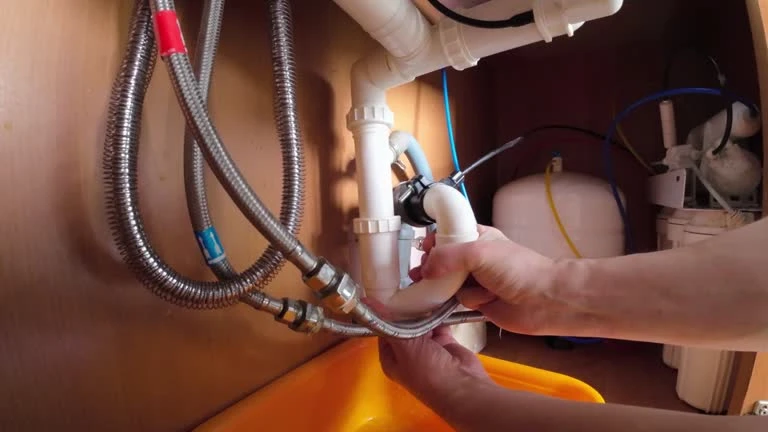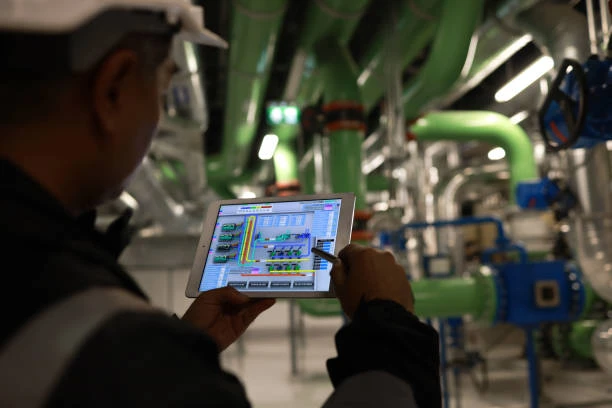Introduction to Ball Valves in Wastewater Treatment
Ball valves play an essential role in wastewater treatment processes. They provide control over fluid flow in various systems. These valves are designed to handle both high and low-pressure conditions. Their quick operation and reliability make them ideal for the wastewater industry. Many treatment plants use ball valves for regulating and directing the flow of water and chemicals. A 4-way ball valve, in particular, serves a specialized purpose in this sector. This article explores the performance and advantages of ball valves, especially the 4-way variety, in wastewater treatment.
Importance of Control in Wastewater Treatment
Efficient control of wastewater is critical to maintaining a safe environment. Wastewater treatment plants must control the flow of water at various stages. This ensures the removal of contaminants and pollutants. Ball valves offer precise flow regulation, which is vital for each treatment phase. The ability to start, stop, and adjust flow with accuracy is necessary for effective treatment. Furthermore, a 4-way ball valve can direct the flow of water in multiple directions, offering flexibility in treatment systems. This flexibility improves operational efficiency and reduces downtime in treatment plants.
4-Way Ball Valves and Their Specialized Role
The 4-way ball valve is essential for specific functions in wastewater treatment. Unlike standard ball valves, they can direct the flow of water in four different directions. This allows for versatile control over wastewater distribution. In many treatment plants, these valves are used to switch between various treatment stages. For example, a 4-way ball valve can redirect water between tanks or filtration systems. This flexibility improves system functionality and optimizes the treatment process. Additionally, 4-way ball valves are durable, which is crucial when dealing with harsh wastewater environments.
Durability and Material Considerations for Ball Valves
Durability is crucial in wastewater treatment. The materials used in ball valves must withstand harsh chemicals and corrosive environments. Stainless steel is commonly used due to its resistance to rust and corrosion. It is ideal for handling wastewater, which often contains harmful chemicals. A 4-way ball valve made of stainless steel can endure high-pressure and high-temperature conditions. Other materials, such as PVC or brass, may be used for specific applications. Choosing the right material depends on the characteristics of the wastewater being treated. Ball valves made from the appropriate materials offer longer lifespan and better performance.
Advantages of Using Ball Valves in Wastewater Treatment
Ball valves have several advantages in wastewater treatment. First, they provide tight shut-off capabilities, reducing leaks and minimizing contamination risks. The design of ball valves allows for easy operation, with less torque required to open and close the valve. This makes them user-friendly and efficient in a treatment plant. Additionally, their simplicity means fewer parts are prone to failure, enhancing reliability. 4-way ball valves offer further advantages in controlling multiple flow paths. They improve the versatility of the treatment system and simplify the design of the piping network. Their efficiency and low maintenance requirements make them an attractive choice for wastewater management.
Flow Control and Efficiency
Flow control is a key aspect of wastewater treatment. Consistent and accurate control of water flow ensures that treatment processes occur efficiently. Ball valves, especially the 4-way type, allow for easy regulation of flow rates. The quarter-turn operation of ball valves ensures that operators can quickly adjust flow as needed. This makes them ideal for scenarios where flow rates need to be rapidly modified. In a wastewater treatment plant, this capability is essential. The ability to control flow effectively prevents overloading and ensures the treatment processes run smoothly. Using 4-way ball valves for flow distribution between stages ensures each phase receives the correct amount of water.
Cost and Efficiency: A Ball Valve Investment
Investing in high-quality ball valves, particularly 4-way ball valves, can lead to cost savings in the long term. While the initial cost may be higher, the durability and low maintenance of these valves reduce operational costs. Wastewater treatment plants often deal with large volumes of water. Valves that can withstand the pressures and complexities of these systems are more cost-effective over time. By preventing leaks and ensuring efficient flow control, 4-way ball valves contribute to the overall efficiency of the treatment plant. Operators should consider these factors when evaluating the total cost of ownership of ball valves. A well-chosen valve can lower repair costs and reduce the need for frequent replacements.
Maintenance and Longevity of Ball Valves
Maintenance is a crucial aspect of ensuring the longevity of ball valves in wastewater treatment. Regular inspections and maintenance prevent malfunctioning and extend the valve’s lifespan. Ball valves are known for their simple design, which makes them easy to clean and maintain. A 4-way ball valve, however, may require more attention due to its additional complexity. Regular lubrication of moving parts, such as the ball and stem, ensures smooth operation. Additionally, operators should check for any signs of corrosion or wear. Routine cleaning and timely replacement of worn-out seals can prevent leaks. Proper maintenance practices enhance the reliability and performance of ball valves in wastewater systems.
Conclusion: The Future of Ball Valves in Wastewater Treatment
The future of ball valves, especially 4-way ball valves, in wastewater treatment looks promising. As technology evolves, ball valves will become even more efficient and durable. Innovations in materials and design will further enhance their performance. Wastewater treatment plants will continue to rely on these valves to manage water flow and prevent contamination. As global water management needs grow, the demand for reliable and cost-effective valves will increase. Ball valves will remain essential for controlling wastewater treatment processes, ensuring the safety and cleanliness of water systems worldwide. Investing in high-quality valves will be key to meeting future challenges in water treatment.
IFAN Products international standards
IFAN products strictly adhere to a comprehensive range of international standards, encompassing ISO 15874, EN 15874, ASTM F2389, DIN 8077/8078, GB/T 18742, NBR 15884, ISO 15494, EN ISO 15494, GB/T 19472, NBR 15494, ASTM 2846 (501), DIN 8079/8080 (502), ASTM F441/F441M SCH80 (503), DIN (504), DIN (505), GB/T 18993, AS/NZS 1477, CSA B137.6, NSF/ANSI 14, TIS 17-2532/1131-2535, BS 3505, BS 4346 (801), ASTM D1785 SCH40 (802), ASTM D1785 SCH80 (803), DIN (804), GB (805), GB (806), GB(901), DWV(902), ASTM D2665 (903), along with ASTM D2241, D2665, D2729, and F441/F441M series, ISO 1452, EN ISO 1452, DIN 8061/8062, GB/T 10002, AS/NZS 1477, JIS K6741, CSA B137.3, and other national and industry norms.
Connect
IFAN is a Chinese manufacturer of plastic pipes, fittings and valves with 30 years of experience. If you are interest in IFAN copper fittings, copper valves, plastic pipes and fittings, please contact us. IFAN offers you a variety of standard pipes to meet your specific needs. Click below to learn more about IFAN’s wide range of affordable and cost-effective valve products and piping system related products.
We will reply your email or fax within 24 hours.
You can call us at any time if there is any question on our production.
For more information,pls visit our webside https://waterpipefitting.com/
Pls Mailto: [email protected]
Whatsapp: +86 15088288323














Recent Comments